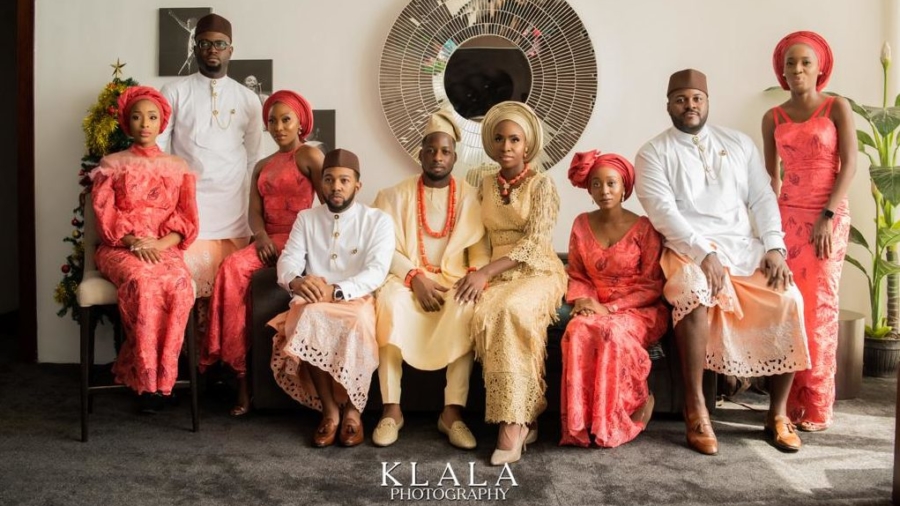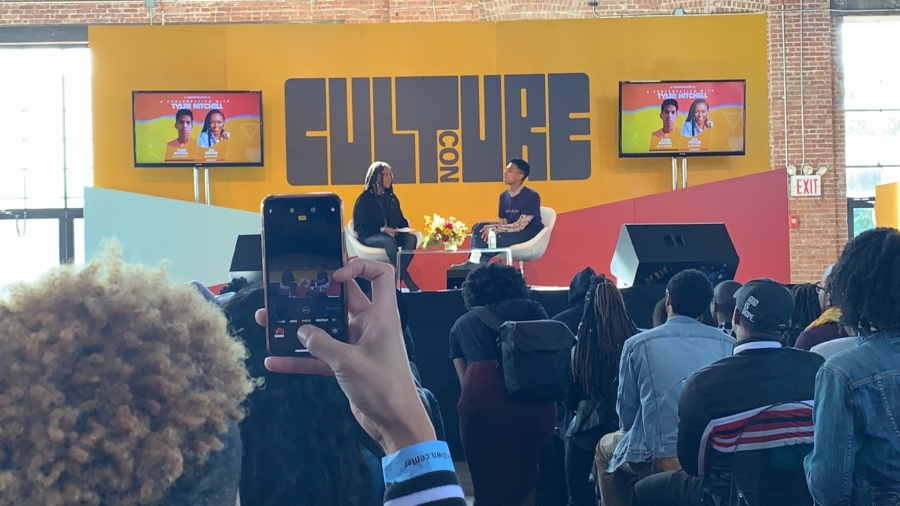One of the biggest stories of 2019…
On Sunday, March 31, 2019, Ermias Davidson Asghedom aka Nipsey Hussle, was unfortunately shot six times in front of his clothing store, Marathon Clothing, in Los Angeles, California. He was pronounced dead shortly after arriving at the hospital.
For millions of fans who were familiar with his music, he was more than just a rapper. He was an entrepreneur, business owner, real estate investor, community philanthropist, a husband, a father, and an inspiration to millions of inner-city youth in his Crenshaw neighborhood and other hoods throughout the country.
Celebrities, rappers, athletes, and other prominent figures took to Twitter to pay their respect and show love for the slain 33-year-old Nipsey. But the majority of people mourning will never be one of the latter, instead, just everyday people who respected his music and mission to make a difference for so many people. The pain is real and he will be missed, forever.
Here’s what some of them had to say…
“Man, real tears! I can’t remember the last time I cried this much… smh… I’ve been going to LA since I was 4-years-old… hella different from Detroit, but it was all love. I listened to his music faithfully… every day for the past 10 years. This shit hurts.” – A. Murray, Detroit, MI
“I wasn’t intimately familiar with Nipsey’s artwork as a rapper but I was introduced to his work as an activist and change agent for good a few years ago. We shared similar visions and values so I am saddened to hear of his life being senselessly snuffed out. I am hopeful that the outpouring of grief will drive us to collectively continue his mission.” – Soulful Silverback, NYC
“It seems he was a man ahead of his time. Take away the rapper Nipsey… let’s speak on the influence of the man named Ermias Asghedom. He used his outlet… as well as his knowledge to teach and help us as people do better and build our self-worth. To me, he is now a leader that left us too soon but will always be honored and never forgotten. We’re going to keep your Victory Lap and legacy going until the end because we as the people have to protect the ones that stand for bettering the Black community and the culture of Hip-Hop as a whole.” – L. Benzo, NYC
“We will feel this loss forever. Hussle was a man who practiced what he preached and led his life with honor and respect. He’s planted many seeds along his life and now that he’s gone, it’s up to us to water them and help them grow. Work harder, give more and never forget where you came from. Rest easy Nipsey!” – Center Left HR, Washington, DC
“Nipsey brought an element to rap music that was missing. His energy, swagger, ability to educate and heart was something that isn’t present in today’s music. He made sure you knew where he was from and how he wanted to educate his community on economic empowerment. Gone way too soon but will never be forgotten. This generation’s Tupac Shakur.” – J. Malone, Detroit, MI
“It appears the more “woke” you are and the more you chose to do for the people and not the man, the greater the threat you are to them and bigger the target you become.” – Professional Athlete, Southeast
“Nipsey’s death is tragic and unexpected. He was a dope artist and more importantly a young Black entrepreneur who was giving back to his community. Many people do not understand how difficult it is to be successful, be a father, and stay alive as a young Black man, particularly those of us from low-income high-crime areas. Nipsey has now become yet another alarming statistic in the midst of success and fatherhood and all I can do as a young Black father and entrepreneur myself is pray and continue to make positive strides and influence those I encounter with the same values. This is a cold world and unfortunately, this “change” we all hope for is very far away when you consider the fact that this incident happened right outside of his own neighborhood business. Sad reality that we all have to swallow.” – J. Hampton, Atlanta, GA
“Nipsey was a once in a generation type artist, but not for his pure lyricism or superior metaphoric wordsmith. Nipsey spoke to the people in ways many legends never could. He spoke to the millennial hip-hop enthusiast that grew up in between the Golden Era and Trap Era of hip-hop. I personally met and discovered Nipsey during his first NYC promo run for his first mixtape in 2008 and I immediately became enamored with his maturity and authenticity. His early rhymes took you on a West Coast journey, placing you in his Lincoln Towncar riding through the streets of Compton. As his music and career grew, I personally felt as a fan that I grew alongside him. Both being born in 85′. I listened to his music less feeling like a super fan but more like a distant peer. Motivating me to go harder, creating my own lanes but embracing vulnerability to acknowledging the many trials and tribulations life brings. These raw emotions most artists cannot tap into. We didn’t just lose a rapper, we lost a new generational leader of hip-hop ready to take the torch and run our marathon.” – D. Faulkner, NYC
“The Loss of Nipsey Hussle is a huge blow to the Hip-Hop culture. I didn’t know him. I never met him. I loved his music. I loved his message of independence, sustainability, and economic empowerment for HIS community. My condolences to his family, children and loved ones. We lost a true warrior on 3/31/19. May his legacy inspire greatness in each of us. Long live Neighborhood Nip aka Nipsey Hussle born Ermias Asghedom.” – S.B. Webb, Atlanta, GA
“Success, in a different light. That’s who Nipsey was to me. Finally a version of success that was attainable. Finally a form of success that looked like us, belonged to us, and that talked like us, and that really made a difference. That’s why Nipsey’s death hurts so many of us. He didn’t lose who he was or his principles. He knew success wasn’t his, but of his community. His work provided opportunity to overcome the bad around him, the drugs, the gangs, the violence. He worked to build the community back up even though it was handed it to him broken. For this man to be killed in front of what he built makes it seem like once again the dream of success was close but not achievable and out of reach.” – Center Single Mom, Washington, DC
“It’s difficult losing young Black men who are perfect messengers regarding the positive influences we need in African-American culture. As a young Black man who often speaks to teens about transitioning into adulthood, it’s not easy to get through, so when you have those messengers taken from us before their full impact can be felt, it’s devastating. Hopefully, Nipsey’s words are felt far and wide and folks take it to heart. We need more influential African-Americans in our communities showing what success can and should look like.” – M. Taylor, Detroit, MI
“Although I was very familiar with Nipsey Hussle, I didn’t know the extent of his knowledge, intellect, and service until recently. Since his death, I have been consumed with getting to know more about him beyond music. There aren’t too many artists who inspire me to be a better human. Tupac was one of them and now Nipsey is on that list. I truly believe he was here on an assignment and fulfilled it. We will be better because he was here.” – E. Williams, Memphis, TN
“I have been following this young man’s music since he started. I’m definitely a fan of West Coast music so of course, you would hear about this young dude from Crenshaw. I thought he might be related to Snoop by blood but they’re related by Cuz (60’s). Funny how the greats have similar blessings with similar fates although some are still with us. I don’t believe in conspiracies but I also don’t believe in coincidence. Either way, we’ve lost a Great Young Man who was for us and mobilizing our people in his community and beyond. He should be memorized as the great man that he lived to be. #RIPNIP” – C. Major, Detroit, MI
This article was originally published on 1 April 2019.
What did Nipsey’s music and life mean to you? Share with us by commenting below or emailing us at info@box5351.temp.domains.


